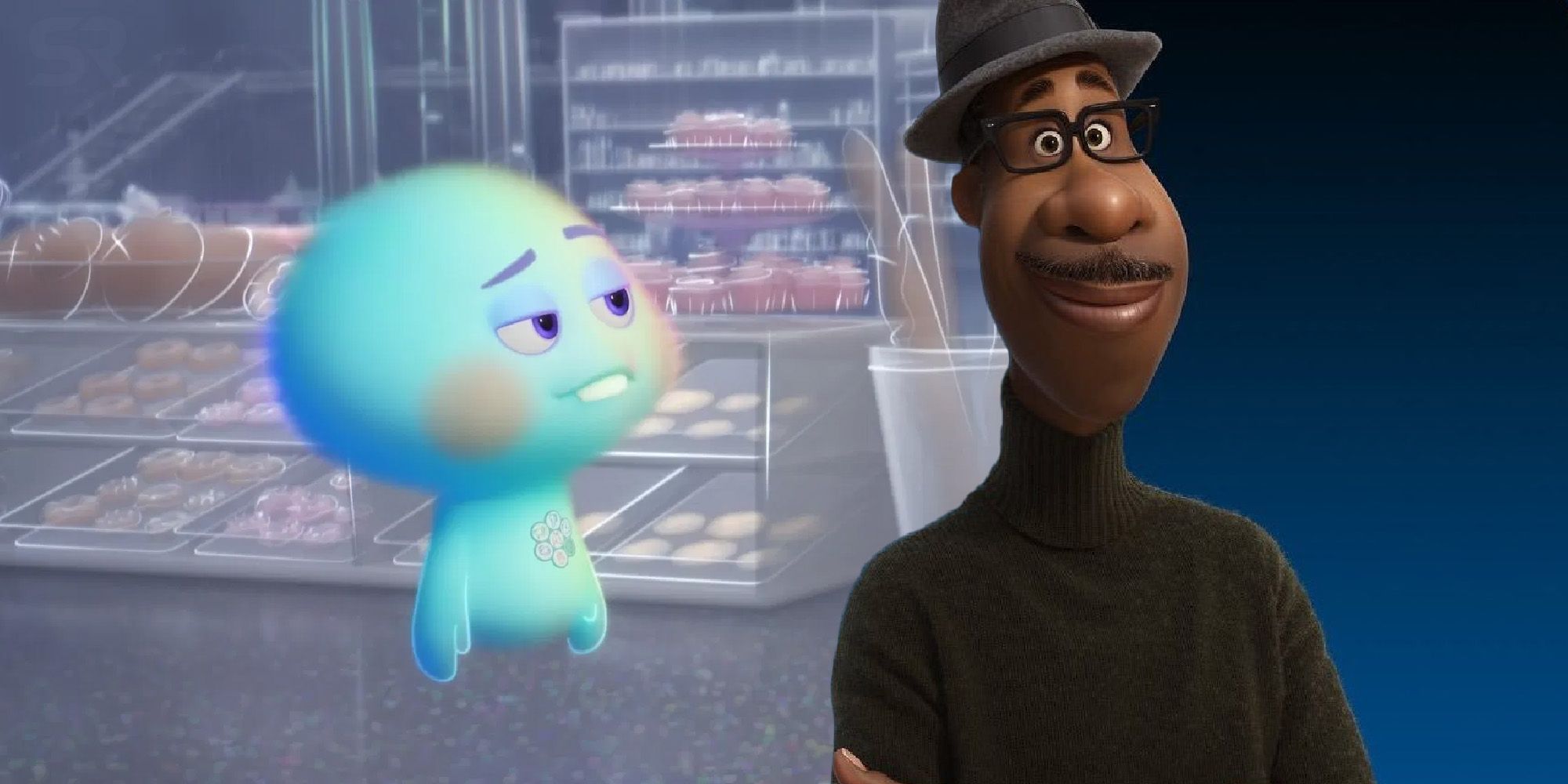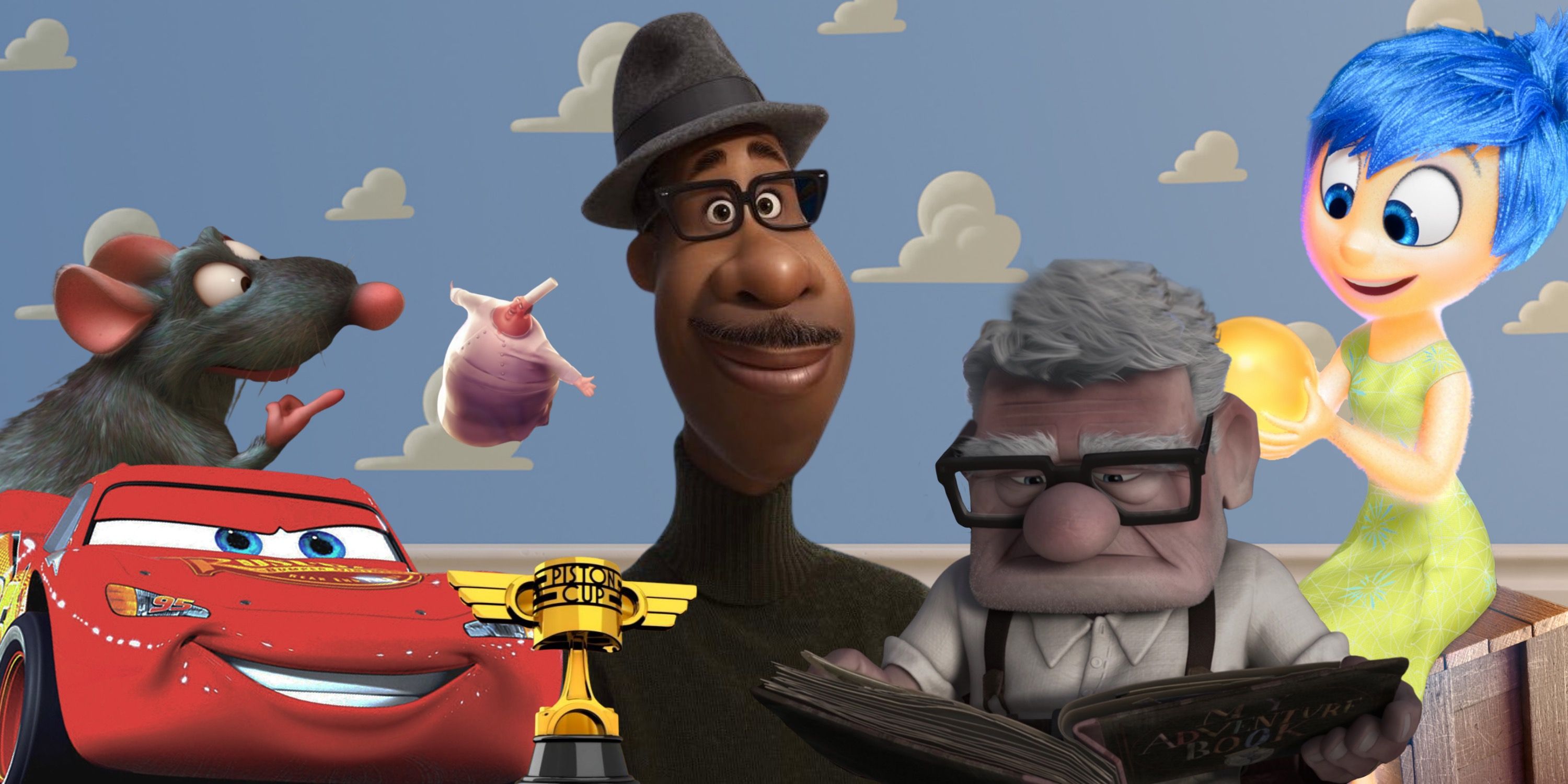For parents who sat down with the kids to watch new Disney+ release Soul on Christmas Day for a 90-minute break from the holiday festivities, perhaps Soul's ending and existential themes of purpose and life's meaning weighed heavier than they'd intended. Indeed, some took this as a flaw on the part of the film, suggesting it wasn't a "kids movie" as they'd figured it to be. But a look into Pixar's track record not only disproves this notion, it challenges the very logic upon which it's founded.
In Soul, Joe Gardner (Jamie Foxx), a middle-aged jazz musician turned middle school band director, comes face-to-face with death, questioning his time on Earth and what it appeared to have meant. Refusing to accept that his life was a failure, he finds a way back to the mortal plane through an amorphous realm called The Great Before, where new souls are prepared to be born. With the help of an unlikely friend, a stubborn young soul named 22, he realizes that life is what you make of it and that no one is necessarily born with a singular purpose. As he helps 22 self-actualize, he decides he's ready for the Great Beyond before being given a second chance, in order to give 22 her first one.
Heavy stuff, no? Pixar's Soul leaves hefty existential questions to ponder over the credits: What does our time on Earth mean? How do we deal with failure? Will we ever achieve our goals, and if we don't, how do we make sense of life? Certainly, the story of Joe Gardner struck a chord with many middle-aged, aspirational viewers, but does this mean the movie is exclusively for them? Can kids not handle mature themes in their media, and can animation ever escape the notion that it's solely for children?
First, the idea that Soul's message fails because it's "for adults" implies that adults cannot enjoy children's media, suggesting children's media is not only distinct from "adult" media, but also somehow inherently inferior. Pixar has challenged this purported dichotomy its entire existence by making films that feature truly universal characters in compelling scenarios. From the get-go, Pixar famously refused to shoehorn songs into their movies despite pressure from Disney, arguing that animation needn't limit itself to song and dance to succeed at all levels and that kids would respond to strong character and story writing just the same as adults. The result? A critically acclaimed filmography that earns Oscars as well as places in the hearts of kids everywhere.
But let's delve deeper into how Soul executes the Pixar recipe. Does Joe Gardner's age or existential dilemma preclude it from being a successful Pixar movie? Finding Nemo's Marlin is a father, Monsters, Inc.'s Mike and Sully are employees—professional athletes of sorts, Bob Parr spends most of The Incredibles experiencing a mid-life crisis, for Pete's sake! None of these characters are children, and none of their struggles are childish, yet children identify with them nonetheless because baked into these protagonists and scenarios are elements essential to the human experience.
But Joe literally stares death in the face and insists his life was meaningless. That's hardly entertainment fit for kids, right? Wrong, as many Pixar films, ostensibly "children's" films, have touched on similar subjects: Bob Parr yearns for the glory days, Coco's entire premise revolves around death, Toy Story 3 has its characters hold hands while staring down incineration, Wall-E is set in an apocalyptic wasteland, and Up's Carl Fredricksen laments the sorrows of old age and past dreams unfulfilled. Pixar challenges the very notion of children's-versus-adults' entertainment, and Soul executes the studio's tried and true methods well. So before condemning it for being "too adult," perhaps it'd be wise to revisit Pixar's previous films to gain some context – and trust that kids are more resilient than one might think.


